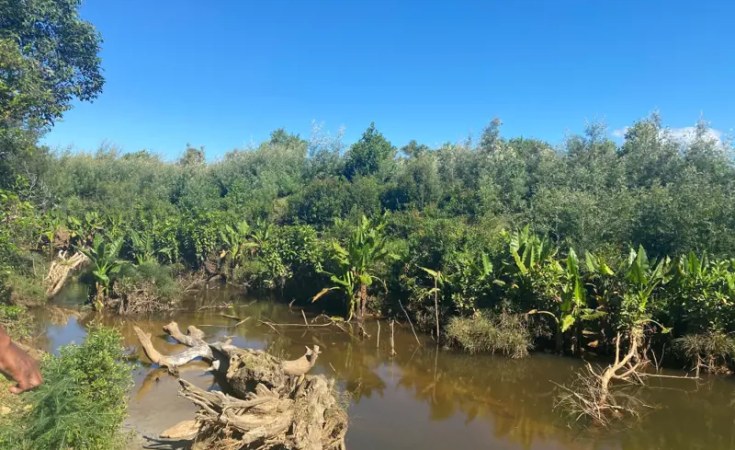Rural villagers living near mine in Madagascar take legal action against mining giant Rio Tinto after tests show dangerous levels of lead in their bodies
A group of rural villagers from Madagascar have launched a legal claim against the UK/Australian mining company Rio Tinto over claims pollution from a nearby mine has caused them to ingest dangerous levels of uranium and lead.
The 64 residents of the Anosy region in southern Madagascar say the QIT Minerals Madagascar (QMM) mine in Fort Dauphin, which is 80% owned by Rio Tinto, has contaminated surrounding lakes and waterways with the toxic metals. Up to 15,000 people in the area rely on these water sources for their drinking and domestic water supply.
Blood tests carried out on members of the communities in the area around Fort Dauphin have shown elevated levels of lead in their bodies that exceed World Health Organisation thresholds beyond which medical care is recommended. One individual has such high levels of lead that they require a medical process called chelation therapy to remove it from their bloodstream. The villagers cannot afford the medical care that they now need.
Lead is especially harmful to young children, causing permanent brain damage that can lead to a range of cognitive and behavioural disorders. Exposure to uranium can damage the body's development, particularly in children and pregnant women, as well as increasing cancer rates and damaging kidney function.
The QMM mine produces ilmenite, which is used to manufacture titanium dioxide, a white pigment used in paints, food, cosmetics, and other items. The mine extracts ilmenite from the sands along the edge of Lakes Besaroy and Ambavarano. Independent studies have shown that mine wastewater containing high levels of uranium and lead has been discharged into the surrounding environment.
Lawyers from the law firm Leigh Day, who are bringing the legal claim on behalf of the residents, say their clients have suffered loss and damage as a result of the pollution caused by the mine's operations.
The villagers rely on local waterways for all of their domestic needs, such as drinking, washing clothes, fishing and cooking. They, and their families, regularly draw water from waterways that are alleged to be contaminated by the operations of the QMM mine
In a letter of claim sent to Rio Tinto's London HQ on Tuesday 2 April 2024, Leigh Day says that those people affected by the lead and uranium pollution now urgently need ongoing monitoring of the lead levels in their blood and medical care for high-risk groups such as children and women of child-bearing age.
Leigh Day is not revealing the identities of its clients at this stage because of the risk of reprisals. There have been concerns that people in the region have been afraid to speak out about issues such as water quality. In recent years there have been several protests during which people protesting against QMM were arrested and fined. There have also been claims more recently that local residents were being coerced and intimidated to enter into agreements with QMM.
Rio Tinto disputes the claims that the QMM mine has polluted water bodies in the area, citing evidence that the water contains low levels of uranium. The company says its water management systems ensure that QMM's activities do not increase the exposure of local communities to radiological hazards or other contaminants.
The Anosy region in southern Madagascar is one of the most ecologically diverse regions in the country, with a population of approximately 500,000 people. The south of Madagascar has particularly high rates of poverty, deepening food insecurity and water scarcity.
The residents are being represented by Leigh Day partner Paul Dowling, who expects the number of claimants to increase significantly as the legal action gets under way.
Leigh Day partner Paul Dowling said: "Whilst Rio Tinto extracts large profits from its mining operations in Madagascar, local families are being forced to consume water contaminated with harmful heavy metals. In bringing this case, our clients are seeking accountability and justice for the damage that has been caused to their local environment and their health.
"Rio Tinto continues to make bold public commitments about safeguarding vital water sources and respecting the rights of those affected by its operations around the world. We trust the company will now stand behind those commitments and engage constructively with our clients' claims at an early stage to ensure these communities no longer have to rely on polluted water and can get the medical attention they need."


